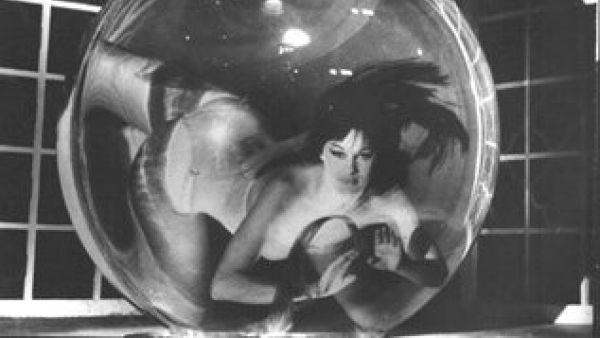“The first traffic jam in Lebanon happened the day the Casino du Liban officially opened in 1959,” Carlos Younes joked.
“It’s said about 3,000 people were invited. “At the time there were not many cars, so the old road to Jounieh wasn’t that great,” he added. “You can imagine the amount of traffic 3,000 people in their cars caused.”
The associate director at the Holy Spirit University of Kaslik’s Phoenix Center for Lebanese Studies, Younes is hoping footage of this moment is among the 70-odd boxes of archive material, which until now has been moldering in the casino’s storage room.
Last week the Casino du Liban and the Phoenix Center signed a cooperation agreement to organize and preserve the casino’s legacy, which some associate with the country’s Golden Age.
The Phoenix Center specializes in gathering the documents and memorabilia of people who have played an important role in Lebanese history - having worked on the collections of Studio Baalbeck, the Sursock family and past Lebanese presidents.
“Our goal is to bring life back to this history,” Younes told The Daily Star. “Just by looking at this lobby and the photos here, my heart swells with pride that these huge celebrities and important personalities once came to Lebanon and walked the halls of the Casino, because it had trust in this country.
“When we think of Lebanon’s Golden Age, you can’t forget the Casino du Liban,” he added. “It was no coincident that the Miss Europe competition used to take place at the casino for about five years (1960-65).
“Even the French Music Festival took place here for a few years and was organized here for the first time outside of France,” he said. “Of course, there were also the beautiful concerts of Fairouz, Sabah and visits from Omar Sharif.”
Licensed in 1957, late in President Camille Chamoun’s term, it remains today the only center officially dedicated to gambling in the Middle East - which attracted celebrities from across the world.
The outbreak of the Civil War in 1975 saw the casino shut its doors until 1989, when the decision was taken to fix structural damage to the building. The massive $50 million refurbishment was completed in 1996. This year, the venue is celebrating its 60th anniversary.
While the material has not been sorted, it’s estimated the boxes hold around 110,000 documents and over 10,000 images, as well as some film and periodicals.
“Right now, we’re not 100 percent sure what is in the archive,” Younes said. “I’m positive we will find amazing things, things that no one has seen before. It will be a great help to anyone interested in finding out more about this [historic] venue.
{"preview_thumbnail":"https://cdn.flowplayer.com/6684a05f-6468-4ecd-87d5-a748773282a3/i/v-i-7…","video_id":"77801cba-2c4c-406a-92fd-24b5631ae73c","player_id":"8ca46225-42a2-4245-9c20-7850ae937431","provider":"flowplayer","video":"Why Was The 'Pharaoh of Cairo' Against Morsi?"}
“There are many steps for the various documents, photos and film footage,” he added. “We have the resources to make digital copies to put them online so any researcher can look through them from the comfort of their own computer. Every single piece of material must pass through five phases before it can be archived properly.”
The first phase will be to sterilize the material, which has been collecting dust and bacteria for decades and so must be cleaned for the safety of the material and those working on it.
“We then start classifying and organizing into categories and giving serial numbers to each item,” Younes explained. “This will create a reference for the item that researchers can refer to in their work and give the item an academic value.”
Finally each item will be described and digitized. The center is also considering taking oral testimonies from people who visited or worked at the casino between Lebanon’s two civil wars.
The casino is preparing a special room onsite to house the archive once the conservation work is completed about a year from now. Managers intend for interested people to conduct research there.
“Right now we’re focusing on the older stuff as it is in a state that can no longer wait,” Younes said, “but once this is done we can look to [making] additions from modern works and important moments for future generations to discover.”
This article has been adapted from its original source.








